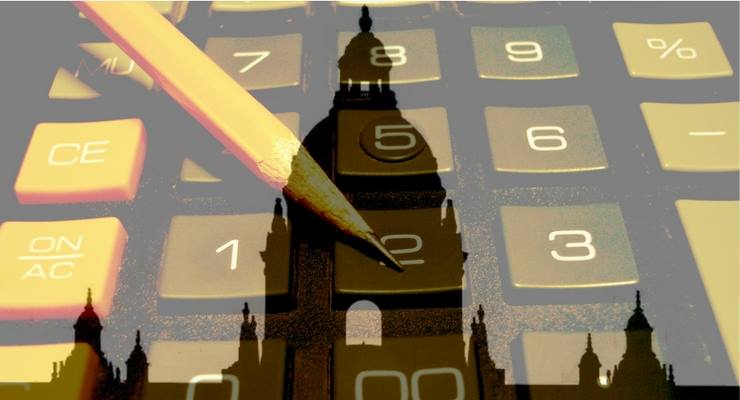
Recent internal audit findings, as part of the city’s Fiscal Year 2019 Audit Plan, revealed major problems with the handling of petty cash and purchasing cards in the city’s public safety departments.
In some cases the Fire Department delayed processing checks and allowed employees that handle checks and cash to also generate invoices, increasing the risk for fraud and misuse.
In the Police Department, the city was forced to suspend cardholding privileges on 14 employees, but a multiple offender who was banned indefinitely from using a city card still had an active card at the time of the audit.
The City Council’s Finance/Audit Committee will discuss the report at 2 p.m. today, June 24.
The meeting can be streamed at: http://pasadena.granicus.com/mediaplayer.php?camera_id=2&publish_id=9.
The audit did not uncover any illegal activity.
“In order to ensure that city policies and procedures are being followed, it is vitally important that we undertake regular audits,” City Manager Steve Mermell told Pasadena Now. “As City Manager, such analysis is invaluable and helps me ensure accountability. The specific findings of this particular audit highlight a number of areas of risk which have been addressed.”
Collectively the city’s 14 department’s petty cash accounts total $101,612, according to documents released in the agenda.
Mermell said most of the issues have been handled.
The audit found inconsistent financial policies in the city’s petty cash practices, including “significant internal control weaknesses” in the Fire Department’s cash handling practices along with noncompliant petty cash practices in the Police Department.
“Five issues were identified during the audit that need to be addressed, of which three are high priority and two are medium findings,” according to the audit.
In the Fire Department, some employees stored checks in their desks resulting in some checks not being processed for a full week.
In at least one instance, the lack of timely processing resulted in a customer putting a stop payment on a check that was not deposited to Municipal Services until a year after the check was written.
According to the agenda, during the scope of the audit there were 5,638 transactions processed by the Fire Department during the scope period reviewed, totaling approximately $1 million in revenues.
Four different cashiers within the department processed these transactions, 85 percent of which were check payments.
“When reviewing the Fire Department’s processes for cash handling, we found numerous incompatible duties assigned to staff and incompatible access in the Firehouse system that
create opportunities for fraud, errors, and misuse,” the audit reads.
“The same employees that handle cash and checks are also generating invoices and entering payment information in their Firehouse system.”
The audit found five issues in department: delayed processing and depositing of cash received, inadequate segregation of duties related to cash handling and recording, conflicting system roles and responsibilities related to invoicing and accounts receivable, lack of reconciliation between Tyler Cashiering and the Fire Department’s systems, and a lack of vetting the Fire Department’s cashiering process prior to authorizing the implementation of Tyler Cashiering, an accounting software used by the city.
According to the audit most of the issues were corrected before the audit was completed.
Several other recommendations, included requiring the department to properly monitor funds to deter theft, loss and misuse of cash are in process.
In the city’s Police Department, the audit found some petty cash accounts were not routinely used and some police department petty cash expenditures were not compliant with policy.
PPD has the largest number of purchasing cards and the highest number of card suspensions.
“The department had 14 instances of purchasing card suspensions for not adhering to the city’s policies and procedures governing purchasing card use, which included failure to complete the monthly reallocation process in a timely manner and purchasing prohibited items,” the audit reads. “The prohibited purchases included gasoline for a personal vehicle to attend a work training, toll violation fine (paid back to the city from an employee petty cash reimbursement) and failure to use the City’s Amazon business account for a purchase.”
The cards have pre-defined spending limits for single purchases,
daily, weekly, and monthly spending limits, and merchant restrictions that prevent certain types of purchases and prevents the use of the card at prohibited businesses, including liquor stores or adult oriented businesses.
However, one active card user in the department indefinitely suspended from card use due to multiple suspensions, still had an active purchasing card during the audit.
Purchases made for staff or community meetings lacked the attendee lists or detailed event information. Meals purchased at a restaurant would not always contain an itemized list of food
and beverage purchased to ensure compliance with the city’s Code of Conduct related to inappropriate food and beverage types.
In other cases, purchases appeared personal in nature, including party and craft supplies for employee events and new dress shoes to replace a pair damaged while on duty.
In some cases mileage reimbursements were made without the city’s approved mileage reimbursement form.
Several requests to add tinting to the windows of undercover vehicles were reimbursed with petty cash, but should have been made using an existing purchase order.
“Although the current petty cash policy does not explicitly prohibit the transactions, the department failed to provide proper documentation to demonstrate appropriateness for department business needs,” auditors wrote.
In some instances, police officers used cards to pay parking and toll lane violations received while using city vehicles.
City purchasing card and travel policies prohibit reimbursement of employees for parking citations and/or driving violations.
All police department personnel designated as petty cash custodians were mandated to attend cash training classes on March 10. Officials in the City Attorney’s office and the city;s Library Department received similar training.
“Cash collected by the City, as well as purchasing cards are examples of assets that can be misappropriated by employees if there are not adequate internal controls in place to prevent or detect theft and loss.”
As of February 20, 2019, there were 259 active purchasing cardholders citywide.
That number was down to 242 by January 29. PPD has the most cardholders with 64 cards, Water and Power has 32 and Public Works has 31.
On a monthly basis, each cardholder is required to review
their card statement purchases, compile all receipts, and ensure there are no discrepancies.
Mermell has issued a directive to cancel purchasing cards for users after more than two violations.
In addition, the Police Department is in the process of requiring training for all personnel that have purchasing cards and will work with the Finance Department to address some unique requirements for the Police Department
The audit also found that the City Attorney’s petty cash account was not regularly reconciled or replenished, and some City Attorney and library expenditures are not compliant with policy.
The Pasadena Weekly did an investigative piece into credit card spending at City Hall in 2012, the Pasadena Weekly obtained documents revealing city officials spent more than $2.3 million in credit card purchases in the first six months of that year, mostly on dining, traveling and other expenses.
The PW began looking into the spending after Former Management Analyst Jean Luter was laid off in early 2012 along with the city’s auditor, George Owen, and 17 other mid-level managers in a round of expense-cutting measures aimed at balancing the city’s $740-million budget.
Shortly before Luter left City Hall, she raised red flags over a number of purchases made by several employees, among them Human Services and Recreation Department Director Mercy Santoro, and recommended that her city credit card be suspended. However, then City Manager Michael Beck personally overrode that decision for unknown reasons.
Two years later, city officials revealed that a former city employee embezzled $6.4 million over a decade.
A five-month-long audit of the program by KPMG later revealed that 296 fraudulent invoices had been turned in resulting in 189 checks being issued.
The audit found that Danny Wooten, 51, a former management analyst who worked in the Public Works Department from 2003 to 2014, turned in the invoices and changed the amount after they were approved and returned to him.
Citing investigators on the case, Wooten’s city-owned computer contained a template allegedly used to create bogus invoices with charges ranging from $7,645 to $787,495.
At that time, the KPMG audit recommended the city strengthen its oversight of petty cash funds and purchasing cards.














 0 comments
0 comments


